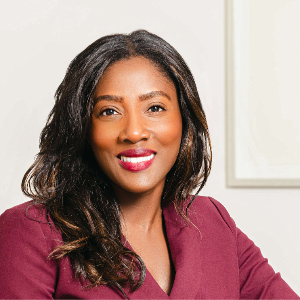
The Truth About Burnout (That No One Talks About)
I’ve been on a deep dive lately, soaking up everything I can about burnout—especially how to fix it. And let me tell you, there’s no shortage of advice out there. From bestselling books to TED Talks to Ivy League courses, the messaging is consistent:
You’re doing too much.
You have a hard time saying no.
You need better boundaries.
You’re probably overcommitting, people-pleasing, and under-delegating. And yes, all of that is true.
But even knowing all this, I still found myself fantasizing about walking away from everything—my work, my responsibilities, my inbox. I wasn’t just tired. I was done.
So what was I missing? And was there a real, lasting fix?
I found clarity in the place I least expected: emotional intelligence.
Wait… Emotional Intelligence?
I know what you're thinking: I already have emotional intelligence. I’m empathetic, I listen, I support my team…
Same. I thought emotional intelligence was mostly about being nice, staying calm, and showing empathy. But once I became a certified practitioner in the EQ-i 2.0 model, I realized I’d only scratched the surface.
Real emotional intelligence isn’t just about how you treat others. It’s about how you relate to yourself—your boundaries, your stress response, your habits, your decision-making, and your emotional energy.
And here’s the part no one’s talking about:
Your burnout might be directly tied to your strengths—not your weaknesses.
Here’s What I Mean
Let me tell you a quick story about a woman I know very well: me.
At the time, I was managing a team designing leadership training for a large corporation. One of my team members was consistently late turning in her work. I knew it. I saw it. But instead of holding her accountable, I jumped in and did it myself—time after time.
Why?
Because I wanted her to feel supported. I wanted the client to get what they needed. I wanted everything to run smoothly.
I told myself I was being flexible. And guess what? On the EQ-i assessment, I scored high in flexibility. It was supposed to be a good thing.
But here’s what I didn’t realize:
When left unchecked, that flexibility became over-functioning.
Over-functioning turned into resentment.
And resentment turned into burnout.
I wasn’t burned out because I was weak.
I was burned out because I was unbalanced.
Burnout Isn’t Always About Bad Boundaries
Sometimes we blame the culture—which can be a huge contributor.
But if the culture were the only culprit, everyone in the same office would feel the same way.
They don’t.
Burnout is deeply personal. It’s the result of what we allow, how we respond, what we internalize, and the stories we tell ourselves about who we have to be in order to succeed.
And while yes, the expectations on women—especially women of color—can be outrageous, here’s a hard truth I had to swallow:
Burnout follows you until you change your relationship with yourself.
That promotion, that raise, that new job, that high-performing team—it won’t save you.
You can burn out at home, too—taking care of everyone but yourself.
And you’re not alone in this. Your manager probably doesn’t have the answer either. They're likely burned out, too.
What Can You Do?
Start by understanding who you are beneath the hustle.
What patterns are you repeating? What strengths are you overusing? What expectations are driving you?
You don’t need another planner or productivity app.
You need permission to lead yourself differently.
And that’s exactly what I created my course to help you do.
💡 Ready to Rewrite Your Story?
Check out my course:
👉 Rest to Rise: A Burnout Recovery Journey for Ambitious Women
Learn how to restore your energy, protect your peace, and create success on your own terms.
[Link to course here once ready.]

